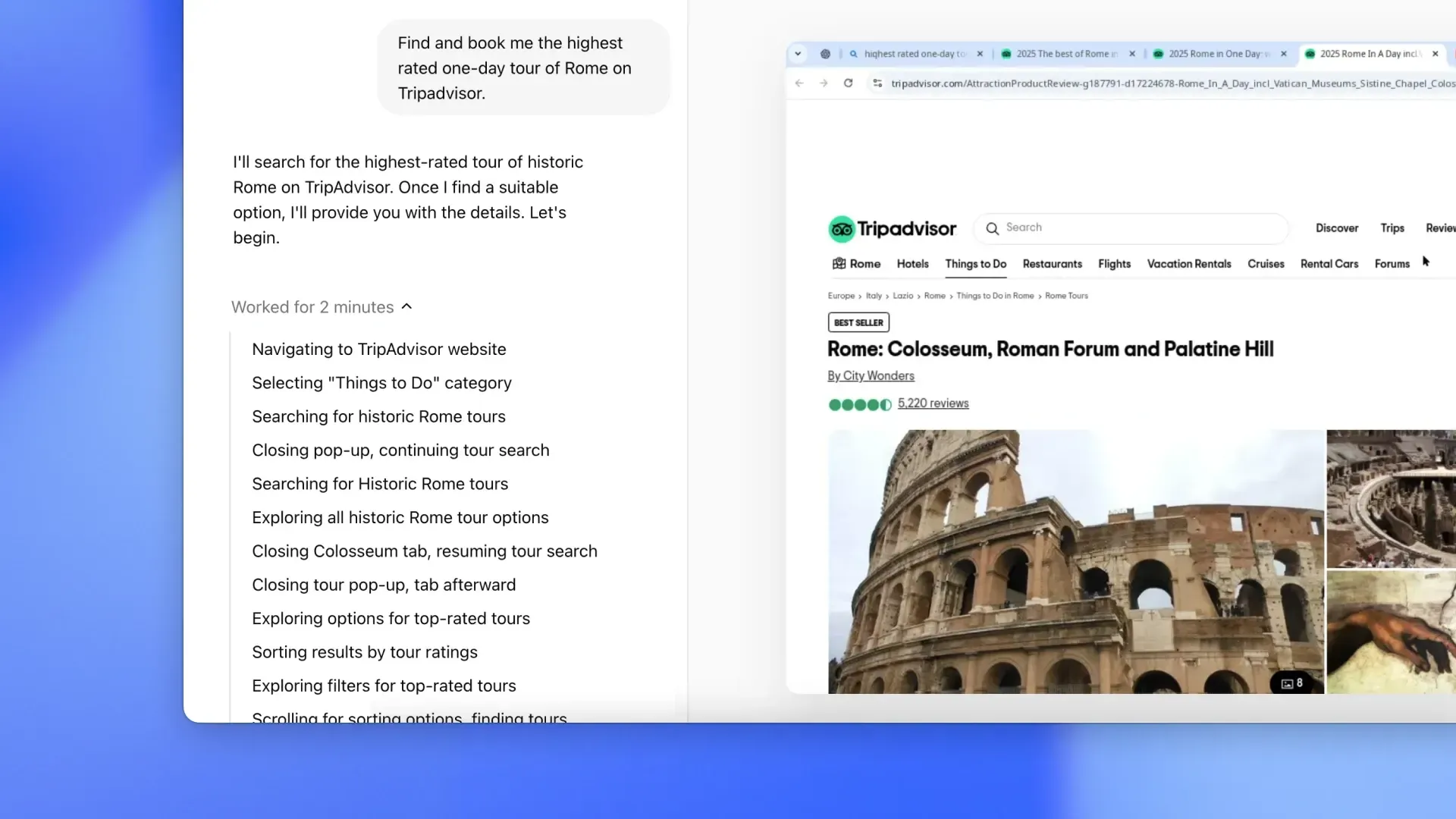OpenAI debuts Operator, aiming to change how we work online and market products
Imagine booking a hotel with AI. OpenAI’s Operator shows what’s possible for marketers to automate campaigns and boost results.

OpenAI has introduced something called Operator, and it’s worth paying attention to.
Think of it as an AI-powered browser assistant that can perform online tasks much like a human would. Whether it’s filling out forms, clicking buttons, or navigating through websites, Operator aims to take over the tedious parts of your digital life.
It’s currently in beta and available to ChatGPT Pro users in the U.S., but OpenAI has bigger plans—scaling it to a broader audience and integrating it into their API.
For now, it’s being described as a tool that handles tasks with a mix of autonomy and collaboration. When things get tricky, like dealing with CAPTCHAs or sensitive info, it knows when to pause and ask for input.
But what does this mean for those of us in marketing?
If a tool like this is widely released, it could reshape how teams approach campaigns, research, and customer engagement.
Let’s unpack the possibilities.
💡 Pressed for time? Here’s what matters:
- Operator by OpenAI is an AI assistant designed to handle online tasks like booking hotels, ordering groceries, and managing appointments.
- It interacts with websites like a human—clicking, typing, and adapting to layouts while asking for help with CAPTCHAs or sensitive inputs.
- Why it’s big for marketers: Operator could automate market research, content scheduling, ad optimization, and lead management.
- Real-world examples: It can gather competitor pricing, schedule social posts, and even pull lead data directly into CRMs.
- What’s next: OpenAI plans to expand Operator, hinting at new ways to save time and reshape marketing workflows.
What is Operator, exactly?
Operator is designed to interact with web pages in real time.
Unlike scripts or bots that are limited to specific tasks, it behaves more like a human navigating a browser. It clicks, types, scrolls, and adapts to different website layouts. The goal is to automate repetitive online tasks without constant human input.
For example, Operator can handle booking a hotel, ordering groceries, or setting up appointments. Say you’re trying to book a hotel room on a website with an unusual layout—Operator can analyze the steps and complete the process for you. If it encounters a CAPTCHA or an unfamiliar scenario, it pauses and asks for your input to ensure accuracy.
This flexibility comes from what OpenAI calls “reasoning”—the AI breaks tasks into steps, adapts to unexpected changes, and resolves issues along the way. Whether it’s navigating a simple form or a complex booking system, Operator is built to figure it out.
Why marketers should care
For marketers, the implications are pretty significant. Here’s how a tool like this could fit into your strategy:
1. Market research without the grind
Keeping up with competitors and trends often means hours of manual work—visiting sites, gathering data, and compiling insights.
Operator could automate this by crawling websites for pricing updates, promotions, and new product launches. You’d get the insights without spending hours gathering them.
2. Content scheduling and management
Running social media campaigns or updating content calendars is time-consuming. Operator could simplify this by logging into your tools, scheduling posts, and even pulling performance metrics. Instead of getting bogged down in execution, your team can focus on strategy.
3. Ad campaign optimization
Marketers often monitor ads across multiple platforms and tweak them for better results.
Operator could take over parts of this workflow—pausing underperforming ads, reallocating budgets, or testing new creative elements based on performance data.
4. Better lead management
Imagine being able to scan websites or directories to identify potential leads, then automatically pull relevant information into your CRM. Operator could streamline this process, saving hours of manual data entry.
5. Real-time customer engagement
A tool like Operator could eventually be used to interact directly with customers—answering queries, gathering feedback, or resolving issues instantly. It’s not hard to imagine integrating it with chat tools or customer service platforms.
Challenges and considerations
While the possibilities are exciting, this kind of technology isn’t without its challenges. Ethical and legal considerations, like ensuring compliance with data privacy laws, will be key. Misuse could lead to backlash, especially if customers feel they’re interacting with something impersonal or intrusive.
Additionally, while automation is great for efficiency, it’s important not to lose the human element. Marketing relies heavily on creativity, empathy, and intuition—areas where AI, at least for now, can’t compete.
Operator is still in its early stages, but tools like this hint at where things are headed. For marketers, it could mean less time spent on repetitive tasks and more time focusing on the big picture. If you’ve ever wished for a way to free up your team’s bandwidth, this kind of AI might be the solution.
That said, it’s not about replacing human effort—it’s about augmenting it. The smartest teams will find ways to combine automation with their own expertise to get the best results.


